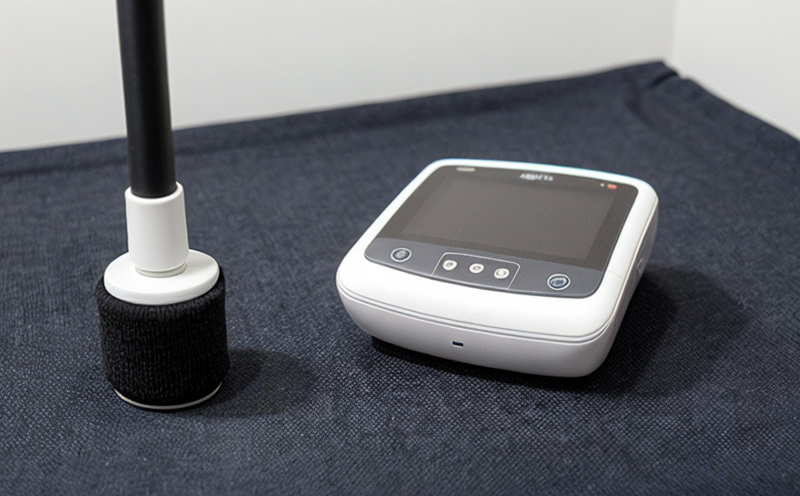Evaluation of heat generation in thermoregulated fabrics
The evaluation of heat generation in thermoregulated fabrics is a critical aspect of ensuring that textile products meet the specific needs and expectations of consumers. In recent years, there has been an increasing demand for textiles that provide thermal comfort by either dissipating or retaining body heat as needed. This service focuses on scientifically assessing how different materials perform under controlled conditions to determine their effectiveness in managing heat.
Thermoregulated fabrics are designed to adapt to the body’s temperature, ensuring that the fabric remains comfortable regardless of external environmental factors. These textiles can be particularly useful in various applications such as athletic wear, outdoor clothing, and even medical garments where maintaining an optimal temperature is essential for comfort and performance.
The process begins with selecting representative samples from the fabric to ensure accurate results. Specimen preparation involves cutting pieces according to standardized dimensions specified by relevant international standards like ISO 13934-2:2017, which defines methods for measuring heat resistance of fabrics. Once prepared, these specimens are subjected to controlled environments where they are exposed to varying degrees of heat and humidity.
For accurate measurement, we use state-of-the-art calorimetric instruments capable of detecting even minute changes in temperature within the fabric. These sophisticated tools provide precise data on how much heat is generated by each sample when it comes into contact with a specified source. The results not only help manufacturers understand which fabrics are most effective at managing heat but also allow them to make informed decisions about material selection and product design.
Heat generation testing plays an important role in several industries beyond just apparel. For instance, automotive interiors often incorporate thermoregulating textiles to keep passengers cool during hot weather while maintaining warmth during colder months. In the healthcare sector, thermal management fabrics are used in patient bedsheets and blankets to help regulate body temperature for those undergoing treatment or recovery.
Additionally, this service supports research and development efforts aimed at creating more sustainable materials by evaluating their ability to maintain optimal temperatures without relying heavily on external sources of energy. By understanding the intrinsic properties of different fabrics regarding heat generation, developers can innovate products that are both eco-friendly and functional.
Eurolab Advantages
- State-of-the-art equipment ensuring accurate measurements
- Experienced and certified technicians providing reliable results
- Compliance with international standards like ISO, ASTM, EN, IEC
- Prompt turnaround times for all testing services
Why Choose This Test
- Ensures compliance with industry and regulatory requirements
- Provides valuable insights into fabric performance under controlled conditions
- Aids in the development of innovative products tailored to specific market needs
- Helps identify potential areas for improvement in existing products
- Supports sustainability initiatives by promoting energy-efficient materials
Quality and Reliability Assurance
At Eurolab, we understand the importance of delivering consistent, high-quality results. Our commitment to excellence is reflected in our rigorous quality management systems that adhere strictly to ISO/IEC 17025 standards. This certification ensures that every aspect of our testing process—from specimen preparation to final analysis—is conducted with precision and accuracy.
We employ only the most experienced and certified technicians who undergo continuous training to stay updated on the latest advancements in textile technology and testing methodologies. Our laboratories are equipped with cutting-edge equipment calibrated regularly to maintain optimal performance levels, ensuring that all test results are reliable and repeatable.
To further enhance reliability, we conduct internal audits periodically to assess compliance with established procedures. External accreditation bodies also perform periodic reviews to verify our adherence to international standards and best practices. By maintaining these stringent protocols, Eurolab guarantees that clients receive accurate, trustworthy data they can rely upon when making important decisions about their products.





